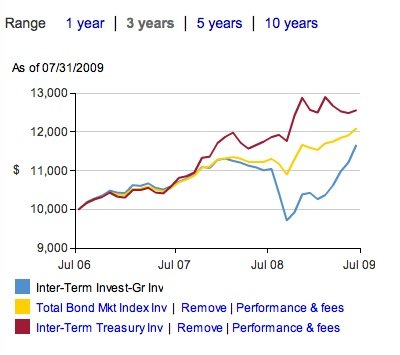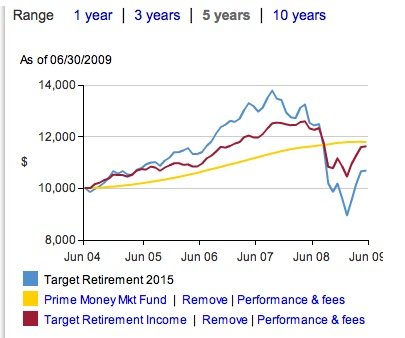Lsbcal
Give me a museum and I'll fill it. (Picasso) Give me a forum ...
Reading through some of these statements I get the feeling that people feel the worst is over and it's time to reflect now. I don't think there is anyway to know where we are at it in this chart pattern we will call history until a few years from now. You should look at the 1930's monthly returns to see how variable things can get. A few good months is (unfortunately) not a trend.
So here is what I've done to my equity plan since last year:
(1) identify a buy and hold percentage that is pretty much weighted towards the total stock market
(2) identify a percentage that will be allocated to international and will be moved into US funds if the trend reverses in favor of US over international
(3) identify a percentage that is market timed between
..(a) smallValue-midcap-treasury
..(b) largeValue-largeGrowth-treasury
..(c) international-US-treasury
Along with this I've done lots of hours of spreadsheet calculations using publicly available data to get at a reasonable monthly (not daily) market timing approach that has some possibility of working going forward. I think the algorithms are reasonably robust but can only be sure of the backtests -- not the future.
No guarantees unfortunately.
So here is what I've done to my equity plan since last year:
(1) identify a buy and hold percentage that is pretty much weighted towards the total stock market
(2) identify a percentage that will be allocated to international and will be moved into US funds if the trend reverses in favor of US over international
(3) identify a percentage that is market timed between
..(a) smallValue-midcap-treasury
..(b) largeValue-largeGrowth-treasury
..(c) international-US-treasury
Along with this I've done lots of hours of spreadsheet calculations using publicly available data to get at a reasonable monthly (not daily) market timing approach that has some possibility of working going forward. I think the algorithms are reasonably robust but can only be sure of the backtests -- not the future.
No guarantees unfortunately.




